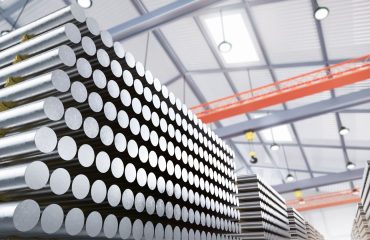What is a solar panel and how does it work?
We can briefly answer the question of what is a solar panel as follows; The solar panel is a vehicle that converts the sunlight coming on it into electrical energy. Solar panels consist of photovoltaic semiconductor silicon cells that convert daylight into electrical energy. A silicon cell generates approximately 0.5 Volts of voltage. As a result of the soldering of the cells in series, the desired panel voltage and current values are reached. Another answer to the question of what is a solar panel, we can say that various amounts of photovoltaic cells are brought together and made ready for use.
For example, 36 cells are connected in series in a 160W panel with 12V nominal voltage. As a result of connecting 36 cells in series, the Maximum Power Voltage (Vmp) value is determined as approximately Vmp = 36 x 0.5 = 18V according to the cell used. In a 270W power, 60-cell panel, the result of the series connection of all cells can be measured as approximately Vmp = 60 x 0.5 = 30V.
The durability of solar panels against environmental conditions is important. Considering their 25 – 30 years of service life, they should be produced by international quality standards, resistant to weather conditions, heating – cooling, corrosion, physical impact, and sunlight, waterproof.

Solar Panel, which is very important for renewable energy sources and solar energy systems, directly converts the sun rays falling on them into electrical energy thanks to their silicon cells. The solar panel, which converts the heat and light given by the sun, which is the most important renewable energy source, into electrical energy, makes it usable in all areas of need and living spaces, is much more important than other energy sources.
Direct current begins to occur to the solar cells on the panels’ thanks to the sun rays. It is connected to home or workplaces by establishing a serial or parallel mechanism by measuring the amount of energy obtained according to the region or season of use. With this application, which converts the obtained solar energy into electrical energy, you can easily operate all electrical appliances and all kinds of devices. In solar power plants, solar panels are indispensable components for generating electricity from solar energy.

How is Solar Panel Made?
The solar panel consists of the aluminum profile frame from outside to inside, insulation material, special tempered glass, EVA, cell and back sheet, and junction box.
The aluminum frame protects the solar panel from physical factors. It creates the necessary structure for assembly and provides easy assembly thanks to its compatibility with the size standards in the sector and the variety of connection apparatus. There is a waterproof insulation material between the frame and the glass.
If you need an aluminum solar panel frame manufacturer as Bor-Usa Aluminum we are here to serve you. We are here to solve your aluminum extrusion solar panel frame problem at a cheap price. We have different types of solar panel frame designs. If you need a durable solar panel frame material you are at the right address. We are one of the best special aluminum frame manufacturers in Turkey. Contact us for more information about the aluminum solar panel frame price.
Tempered solar glass protects the panel from impacts by wind, stones, and similar objects with its high impact resistance. Another feature of the glass is that its surface is designed to allow most of the sunlight inside. However, some light is reflected from the glass into the atmosphere.
EVA (Ethylene Vinyl Acetate) is a special layer that fills between the glass, cells, and back the foil and adheres the pieces together. EVA applied to both sides of the cells during production is melted with a hot lamination method and surrounds the cells.
The back sheet provides insulation for the back of the panel and is specially designed for the panel to operate at optimum temperatures.
The junction box is waterproof to IP64 levels and includes the panel cable connections and the bypass (bridging) diode. The bypass diode allows the rest of the panel to continue generating electricity when one of the panel cell series fails.
Solar Panel Efficiency

Solar panel efficiency is measured with the power generated in a 1 square meter area when irradiation is applied to the panel under standard test conditions (1000W / m2). For example, in a 1m2 cell area with a 15% efficiency value, a panel produces 150W / h of electricity when it receives 1000W / m2 of daylight vertically. Solar panel efficiency depends on the cell type used, cell design and quality, and the quality of glass and other components.
For example, while a solar panel efficiency of 17% is still around 17% efficiency at the end of 10 years, this value may decrease to 15% in the 20th year and to 10% as it approaches the accepted 30th year of life. The harsh environmental conditions and the frequent cleaning of the panels are also important factors in the decrease in panel efficiency.
What to Consider When Buying Solar Panels?

- When you want to buy Solar Panels, first of all, you should determine your NEED correctly. Will you use the Solar Panel in a caravan, vineyard house, or solar irrigation system?
- Solar Panel was born from a technological need, so when you determine your needs correctly, your system will manage you for many years.
- Not all solar panels can be used in every project. Because the needs differ in projects. For example, voltage is important for solar panels in solar irrigation systems. The ampere value of the solar panel is important in battery systems.
- Decide if you want to buy a Monocrystalline Solar Panel or a Polycrystalline Solar Panel.
- You have determined your needs, decided to be polycrystalline or monocrystalline. Choose well-known brands. The wattage and open voltage of the solar panel you want to buy is important for you.
As you can see buying solar panels needs a little bit of research. If you are a solar panel manufacturer and if you need a Aluminum panel frame manufacturer we are here to serve with the best price.

Bor Aluminum – Content Producer







